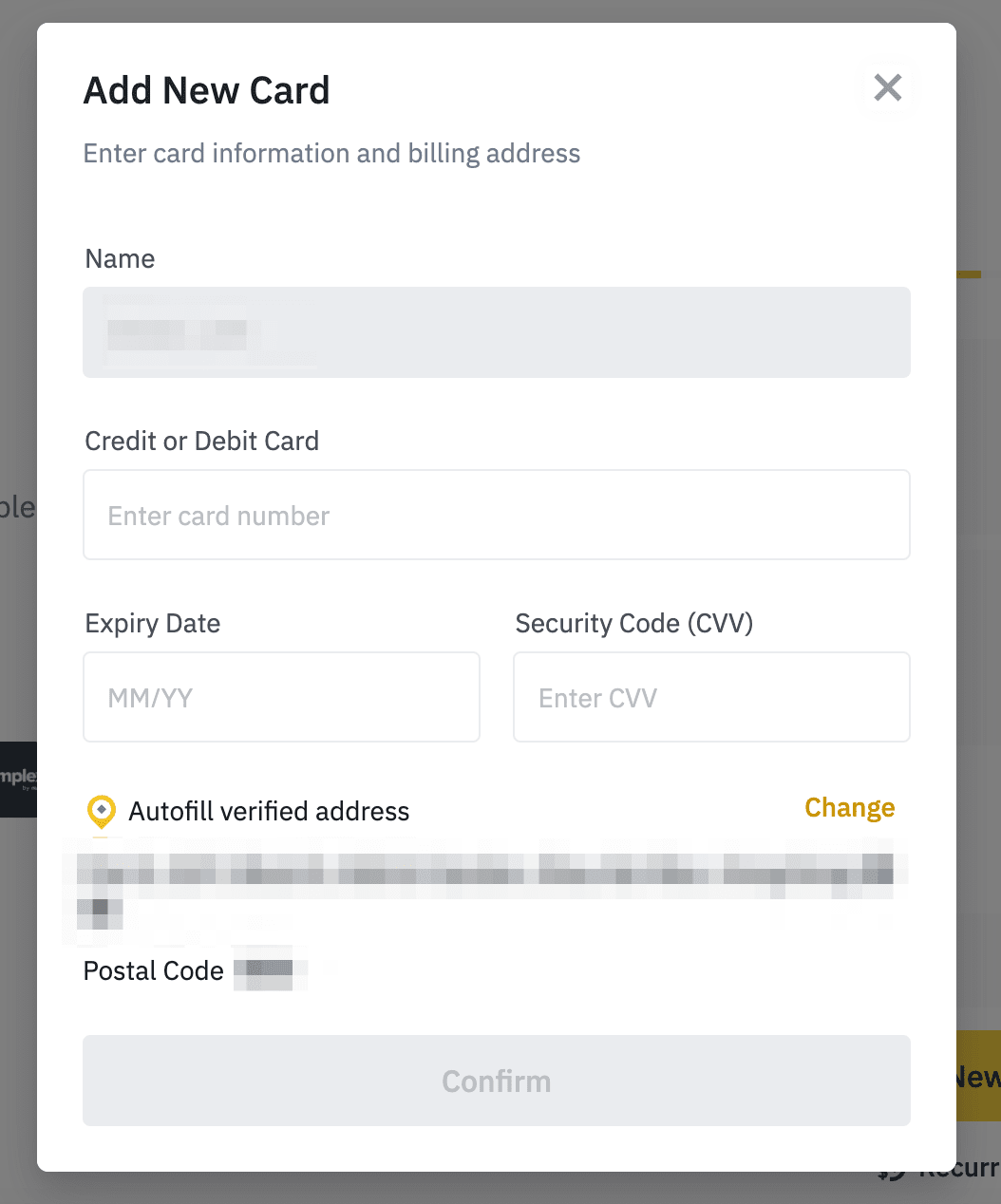Buy Crypto

Assets




Before embarking on the journey of purchasing Ethereum, it's crucial to first understand what Ethereum is and its core elements. This will provide a solid foundation for subsequent steps in the purchasing process.

Ethereum is a decentralized, open-source blockchain platform that enables the creation of smart contracts and decentralized applications (dApps). These features make it much more than just a digital currency; it's a whole network with its own internet browser, coding language, and payment system. Most importantly, it enables users to create and operate decentralized applications, also known as dApps, on its platform.
This revolutionary platform was proposed in late 2013 and development was crowdfunded in 2014, with the network going live on July 30, 2015. Since then, it has quickly risen to become the second largest cryptocurrency platform by market capitalization, right behind Bitcoin.
Ether (ETH) is the native cryptocurrency of the Ethereum platform. It acts as the 'fuel' for the ecosystem, as it's used to power transactions and incentivize network participants. When people refer to buying Ethereum, they're usually referring to purchasing Ether.
As a potential investor, it's important to note that when you buy Ether, you're not buying a share of the Ethereum network, but rather a unit of the network's currency. Ether can be traded on various cryptocurrency exchanges, used to pay for transaction fees, or used to participate in Ethereum's proof-of-stake consensus mechanism.
If you're considering staking your Ether, take a look at our article on should you stake Ethereum for a comprehensive guide.
By understanding the fundamental aspects of Ethereum and Ether, you can make more informed decisions when it comes to buying and using this cryptocurrency. The next sections will guide you through the process of setting up an account, purchasing Ether, and storing it securely.

Before diving into the process of buying Ethereum, it is essential to understand some key considerations. These include understanding the risks involved in buying Ethereum and choosing a reputable exchange platform.
Investing in any form of cryptocurrency, including Ethereum, comes with its risks. The market is known for its high volatility and unpredictability, often leading to significant changes in the value of cryptocurrency assets. Before you start buying Ethereum, it's important to understand these risks and prepare accordingly.
While Ethereum is a well-established digital asset with a solid technology foundation, price swings can still occur. These can be influenced by numerous factors, including regulatory news, market sentiment, and significant updates in the technology or use cases of Ethereum.
Additionally, Ethereum, like other cryptocurrencies, is not backed by a physical asset or a government, which can add to the risk. Hence, it's crucial to do your research, understand the risks associated with cryptocurrency investments, and consider consulting a financial advisor if needed.
Once you've acknowledged and accepted the risks involved, the next step is to choose a reputable and secure platform to buy Ethereum. This is crucial to protect against potential risks such as fraud or hacking.
Some popular exchanges for buying Ethereum include Coinbase, Binance, and Kraken. Each of these platforms has its own set of features, security measures, fee structures, and customer service experiences. When selecting an exchange, consider factors such as transaction fees, security features, user interface, customer reviews, and the availability of other services such as staking or lending.
Remember, when it comes to handling your money, trust and security should be your top priorities. Always ensure that your chosen exchange has a strong reputation and offers robust security measures, including two-factor authentication (2FA), encryption, and cold storage for funds.
Once you've chosen your exchange, the next step is to open an account and complete the verification process. This process may include providing personal identification documents and a selfie. For more information on different cryptocurrencies and how to purchase them, check out our guides on what is USDT, how to buy XRP, and what is XRP.
The process of purchasing Ethereum, or any cryptocurrency, involves several steps. Let's walk through the necessary actions to prepare for your purchase, including creating an exchange account and verifying and funding it.
To buy Ethereum, you need to create an account on a cryptocurrency exchange platform that supports ETH trading. Some popular exchanges include Coinbase, Binance, and Kraken. Each platform has its own registration process, but it generally involves providing some basic personal information, such as your name, email address, and in some cases, phone number.
It's important to note that the security measures vary across different exchanges. Therefore, it's advisable to choose an exchange that offers robust security features, such as two-factor authentication, to ensure the safety of your assets. Once you've chosen your preferred exchange, you can start the registration process.
Once your account is created, the next step is to complete the verification process. This is a crucial step required by most exchanges to comply with regulatory standards. The verification process typically involves providing personal identification documents, such as a passport or driver's license, and occasionally a selfie for facial recognition.
The verification process helps the exchange confirm your identity, preventing fraudulent activities and ensuring the safety of your funds. The time it takes to verify your account can vary from one exchange to another, ranging from a few minutes to several days.
After your account is verified, you can deposit funds into it. Depending on the platform, you can deposit either fiat currency, such as USD or EUR, or other cryptocurrencies like Bitcoin. Some exchanges allow for direct bank transfers, while others might require you to deposit cryptocurrency and then exchange it for Ethereum.
Once the funds are in your account, you're ready to start buying Ethereum. Remember, investing in cryptocurrencies comes with risks, so it's always a good idea to start with a small amount until you become more comfortable with the process.

After understanding the basics of Ethereum and setting up your exchange account, you're ready to move to the next step: buying Ethereum. This process involves two main steps: deciding how to buy Ethereum and placing your order.
You can purchase Ethereum using fiat currency, such as the US Dollar or Euro, or with other cryptocurrencies like Bitcoin. The method you choose depends on your personal preference and the options available on your chosen exchange.
Most major exchanges like Coinbase, Binance, and Kraken allow users to buy Ethereum with both fiat and crypto. Some also offer the option to buy Ethereum directly from other individuals through peer-to-peer platforms like LocalEthereum or LocalBitcoins.
To buy Ethereum, you first need to deposit funds into your exchange account. This process varies by exchange but typically includes options for bank transfers, credit card payments, or transfers of other cryptocurrencies from a different wallet. For more details on how to deposit funds, refer to your chosen exchange's help center or customer support.
Once your account is funded, you can place an order to buy Ethereum. To do this, search for Ethereum (ETH) on your exchange's trading platform. You should see an option to buy or trade ETH.
When placing an order, you'll need to specify the amount of Ethereum you want to purchase. Some exchanges also allow you to set the price at which you're willing to buy. If you're new to buying cryptocurrency, you might prefer to use a 'market order', which will buy Ethereum at the best available price.
After your order is complete, the Ethereum will be added to your account on the exchange. From here, you have the option to keep your Ethereum on the exchange or transfer it to a personal Ethereum wallet. Storing large amounts of Ethereum in a personal wallet is generally recommended for added security.
Remember, buying Ethereum is just one way to acquire the currency. If you're interested in other methods, you might consider learning how to mine Ethereum or whether Ethereum is proof of stake or not.
These steps on buying Ethereum are just one part of your journey into cryptocurrency. It's important to continue learning about different cryptocurrencies, such as XRP and USDT, and how to securely trade and store them.
The standard steps when buying Ethereum include the following (we will use Binance as an example):





Once you've bought Ethereum, the next steps are crucial to ensure the safety and accessibility of your investment. This involves transferring your Ethereum to a wallet and understanding various Ethereum storage options.
After purchasing Ethereum, it's strongly recommended to transfer your tokens from the exchange to a personal Ethereum wallet. This step enhances the security of your investment and protects it from potential threats associated with exchange platforms.
Here's a simple guide to transferring your Ethereum:
Remember, there may be transaction fees associated with this process, depending on the exchange and network congestion at the time.
When it comes to storing your Ethereum, you have several options. The choice largely depends on the balance you wish to maintain between security and convenience.
Each storage option has its pros and cons, so consider your individual needs and circumstances. Whether you plan to trade frequently, hold your Ethereum long-term, or stake your Ethereum, there's a storage solution that's right for you.
Remember, the security of your investments are paramount. Always ensure to use trusted and reputable wallets and exchanges, and employ strong security practices such as using two-factor authentication and keeping your private keys private.
If you want to skip the hassle of buying Ethereum on an exchange platform and then transferring funds to a wallet, Atomic Wallet has got you covered. You can buy and store Ethereum in the wallet itself!
Atomic Wallet is a secure place to manage Ethereum and other cryptocurrencies. One of its key features is the ability to buy Ethereum (ETH) with a credit card instantly. Simply create a wallet and purchase Ethereum with just a few clicks. For more information on how Atomic Wallet works, check out our guide on how to buy crypto in Atomic Wallet.
If you’re not sure where to store your Ethereum, check out our article on what the best Ethereum wallet is for some pointers.
By following these steps, you will be well on your way to securely managing your Ethereum investment.

Sharding is a process of breaking down a blockchain into smaller segments that is aimed to improve the transaction costs and speed.